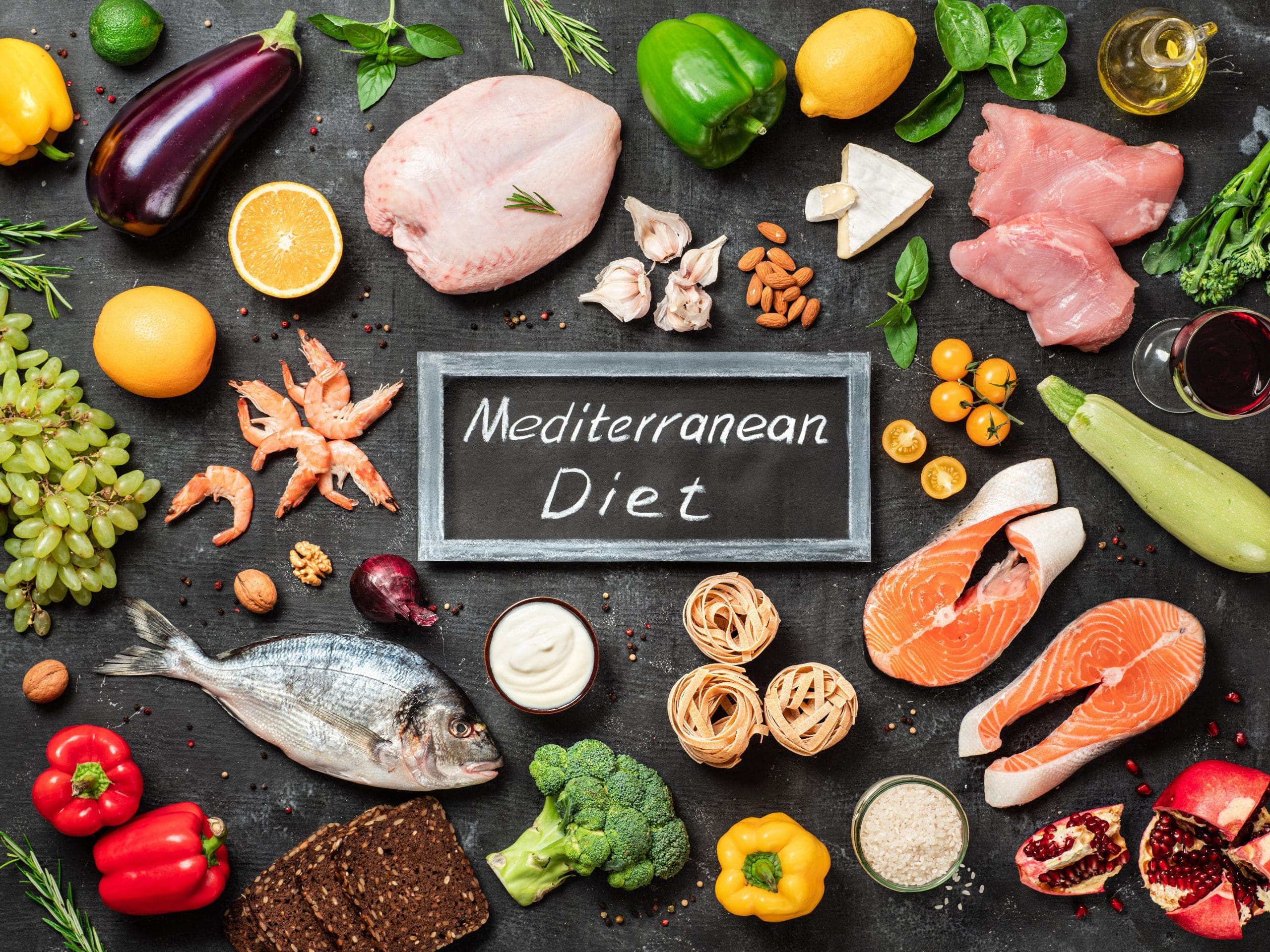Table of Contents
Introduction
The cardiovascular system is consisting of the heart, the arteries, blood vessels, and the blood itself. This system makes sure that oxygenated blood is being pumped and transported from the heart to the rest of the body. However, when chronic illnesses like cardiovascular diseases start to affect the body and start to target the heart, it can cause the body to be dysfunctional and over time cause many problems like inflammation or high blood pressure that can cause a person to be miserable. In this 2 part series, we will be taking a look at diets that can help prevent cardiovascular disease in the body. Part 2 will be looking at different nutritional food that can help lower the risk of cardiovascular disease. By referring patients to qualified and skilled providers who specialized in cardiovascular services. To that end, and when appropriate, we advise our patients to refer to our associated medical providers based on their examination. We find that education is the key to asking valuable questions to our providers. Dr. Alex Jimenez DC provides this information as an educational service only. Disclaimer
Can my insurance cover it? Yes, in case you are uncertain here is the link to all the insurance providers we cover. If you have any questions, please call Dr. Jimenez at 915-850-0900.
What Is Cardiovascular Disease?
Cardiovascular disease is a cluster of conditions that can affect the heart. When there are unwanted pathogens that entered the body and start to cause problems it can lead to chronic problems developing over time. Research studies have shown that some of the symptoms of cardiovascular disease vary from males and females but they include:
- Chest pain
- Shortness of breath
- Weakness in the legs or arms
- Chronic back pain
Sometimes even if a person is getting a routine check-up from their primary physician, the diagnosis of that person having cardiovascular disease can be found.
Diets To Prevent Cardiovascular Disease
When the body starts to feel dysfunctional and a person is wanting to get their health and wellness back, maintaining a healthy diet can provide beneficial results in the body. When making the switch to eating healthier, it can be hard at first due to eliminating all the unhealthy foods that are so good yet so bad. However, if a person has cardiovascular disease and wants to make a change to prevent the symptoms from rising, having a heart-healthy diet can provide beneficial properties to their health and well-being.
The Guidelines
Taking the first step to live a healthier lifestyle can be difficult but here are some of the guidelines to make the transition easier for people that want to improve their health.
- Follow a healthy eating pattern: All food and beverage choices matter. By choosing a healthy eating pattern at an appropriate calorie level can help achieve and maintain a healthy body weight, support nutrient adequacy, and reduce the risk of chronic disease.
- Focus on variety, nutrient density, and amount: By meeting the nutrient needs within the calorie limits, it is best to choose a variety of nutrient-dense foods across and within all food groups in recommended amounts.
- Limit added sugars, saturated fats, and sodium intake: Cut back and limit eating added sugars, saturated fats, and sodium intake from food and beverages that contain these components to fit within healthy eating patterns.
- Shift to healthier food and beverage choices: By choosing nutrient-dense foods and beverages that are in all the food groups in place of the unhealthy choices. Consider cultural and personal preferences to make these shifts easier to accomplish and maintain.
- Support healthy eating patterns for all: Everybody has a role to help create and support healthy eating patterns in multiple settings.
Mediterranean Diet
Research studies have shown that the Mediterranean diet emphasizes fruit, vegetables, grains, nuts, legumes, dairy, olive oil; small amounts of poultry, fish, red meat, red wine and can help reduce the risk of coronary heart disease. Other studies have shown that the Mediterranean diet has been associated with reducing the risk of the body developing acute coronary syndromes that are in diabetes, being physically inactive, and cardiovascular factors.
Mediterranean Diet Benefits
Some of the other beneficial factors that the Mediterranean diet can provide not just for the cardiovascular system, but also for the body itself. By consuming the Mediterranean diet, it can help lower blood pressure while also improving the serum lipids in the body by lowering TC, LDL, TG, increasing HDL, lowering oxLDL and Lp(a). Improves LDL size and decreases LDL-P to a less atherogenic profile. Other beneficial properties that the Mediterranean diet can provide include:
- Improves T2DM and dysglycemia
- Improves oxidative defense and reduces oxidative stress: F-2 isoprostanes and 8-Oxo-2′-deoxyguanosine (8OHDG)
- Reduces inflammation: lowers (high sensitivity C reactive protein) hsCRP, interleukin – 6 (IL6), soluble vascular cell adhesion molecule (sl-VCAM), and soluble cell adhesion molecule (sI-CAM)
- Reduces thrombosis and factor VII after meals
- Decreases brain natriuretic peptide (BNP)
- Increases nitrates/nitrites
- Improves membrane fluidity
- Reduces MI, CHD, and CVA
- Reduces homocysteine
DASH Diet
The Dietary Approach to Stop Hypertension or the DASH diet is a healthy-eating plan that is designed to help treat and prevent high blood pressure in the body. Research studies show that the DASH diet emphasizes the daily intake of fruits, vegetables, whole grains, beans, fiber, LF dairy products, poultry,
fish, seeds, and nuts, but limiting red meat, sweets, and sugar-containing beverages. Not only that but the DASH diet also makes sure that the individual has an increased intake of potassium, magnesium, and calcium but has a variable restriction in dietary sodium.
DASH Diet Benefits
One of the benefits that the DASH diet can provide to the body is that it can help lower hypertension in the body. Studies have found that the beneficial dietary patterns from the DASH diet have been recognized by the USDA and the NHLBI for reducing diabetes and cardiovascular risks. Other beneficial properties that the DASH diet provides include:
- Decreasing the effects of low-density lipoprotein-cholesterol (LDL-C)
- Reduce hypertension
- Reduce the risk of a stroke
- Reduces cardiovascular disease factors from rising
Paleo Diet
The paleo diet or the cavemen’s diet is a dietary plan that is based on food that are eaten during the Paleolithic era. Research shows that the Paleo diet consists of lean meats. fish, fruits, vegetables, nuts, and seeds. Other studies also show that the Paleo diet provides high contents of protein, micronutrients, and fiber while also having a lower caloric intake from carbohydrates and refined fats. The studies also mentioned that the positive effect of the Paleo diet is that this diet is much healthier than the Western diet.
Paleo Diet Benefits
Some of the beneficial factors that the Paleo diet can provide is that it can help improve the cardiovascular and metabolic syndrome markers in the body. Other beneficial factors that the Paleo diet can provide include:
- Improve weight loss
- Improve fat mass and metabolic balance
- Lower triglycerides
- Regulates insulin sensitivity
- Helps control blood pressure
HCTP Research
HCTP therapy is a form of regenerative medicine that helps speed up the body’s natural healing process by repairing and regenerating damaged cells, organs, and tissues back to their original forms. Affiliated clinics and distribution organizations (both internationally and nationally) can provide HCTP therapy services to individuals that are suffering from chronic diseases like cardiovascular disease.
Conclusion
All in all, heart health is very important in preventing the risk of cardiovascular diseases from rising up. By making small changes in a person’s lifestyle, anyone can begin their health and wellness journey with the right tools and motivation to start. By regularly exercising, eating nutritional foods, and changing their lifestyles, the body will begin to heal properly from the inside out, plus the individual will notice that they have more energy throughout the day.
References
Chiavaroli, Laura, et al. “Dash Dietary Pattern and Cardiometabolic Outcomes: An Umbrella Review of Systematic Reviews and Meta-Analyses.” Nutrients, MDPI, 5 Feb. 2019, https://www.ncbi.nlm.nih.gov/pmc/articles/PMC6413235/.
Dontas, Anastasios S, et al. “Mediterranean Diet and Prevention of Coronary Heart Disease in the Elderly.” Clinical Interventions in Aging, Dove Medical Press, 2007, https://www.ncbi.nlm.nih.gov/pmc/articles/PMC2684076/.
Ghaedi, Ehsan, et al. “Effects of a Paleolithic Diet on Cardiovascular Disease Risk Factors: A Systematic Review and Meta-Analysis of Randomized Controlled Trials.” Advances in Nutrition (Bethesda, Md.), Oxford University Press, 1 July 2019, https://www.ncbi.nlm.nih.gov/pmc/articles/PMC6628854/.
Martínez-González , Miguel A, et al. “The Mediterranean Diet and Cardiovascular Health.” Circulation Research, U.S. National Library of Medicine, Mar. 2019, https://pubmed.ncbi.nlm.nih.gov/30817261/.
Medical Staff, Mayo Clinic. “Heart Disease.” Mayo Clinic, Mayo Foundation for Medical Education and Research, 9 Feb. 2021, https://www.mayoclinic.org/diseases-conditions/heart-disease/symptoms-causes/syc-20353118.
Medical Staff, Mayo Clinic. “How to Dash and Dine.” Mayo Clinic, Mayo Foundation for Medical Education and Research, 25 June 2021, https://www.mayoclinic.org/healthy-lifestyle/nutrition-and-healthy-eating/in-depth/dash-diet.
Medical Staff, Mayo Clinic. “Paleo Diet: Eat like a Cave Man and Lose Weight?” Mayo Clinic, Mayo Foundation for Medical Education and Research, 25 Aug. 2020, https://www.mayoclinic.org/healthy-lifestyle/nutrition-and-healthy-eating/in-depth/paleo-diet/art-20111182.
Disclaimer
Post Disclaimer
Professional Scope of Practice *
The information on this blog site is not intended to replace a one-on-one relationship with a qualified healthcare professional or licensed physician and is not medical advice. We encourage you to make healthcare decisions based on your research and partnership with a qualified healthcare professional.
Blog Information & Scope Discussions
Welcome to El Paso's Premier Wellness and Injury Care Clinic & Wellness Blog, where Dr. Alex Jimenez, DC, FNP-C, a board-certified Family Practice Nurse Practitioner (FNP-BC) and Chiropractor (DC), presents insights on how our team is dedicated to holistic healing and personalized care. Our practice aligns with evidence-based treatment protocols inspired by integrative medicine principles, similar to those found on this site and our family practice-based chiromed.com site, focusing on restoring health naturally for patients of all ages.
Our areas of chiropractic practice include Wellness & Nutrition, Chronic Pain, Personal Injury, Auto Accident Care, Work Injuries, Back Injury, Low Back Pain, Neck Pain, Migraine Headaches, Sports Injuries, Severe Sciatica, Scoliosis, Complex Herniated Discs, Fibromyalgia, Chronic Pain, Complex Injuries, Stress Management, Functional Medicine Treatments, and in-scope care protocols.
Our information scope is limited to chiropractic, musculoskeletal, physical medicine, wellness, contributing etiological viscerosomatic disturbances within clinical presentations, associated somato-visceral reflex clinical dynamics, subluxation complexes, sensitive health issues, and functional medicine articles, topics, and discussions.
We provide and present clinical collaboration with specialists from various disciplines. Each specialist is governed by their professional scope of practice and their jurisdiction of licensure. We use functional health & wellness protocols to treat and support care for the injuries or disorders of the musculoskeletal system.
Our videos, posts, topics, subjects, and insights cover clinical matters and issues that relate to and directly or indirectly support our clinical scope of practice.*
Our office has made a reasonable effort to provide supportive citations and has identified relevant research studies that support our posts. We provide copies of supporting research studies available to regulatory boards and the public upon request.
We understand that we cover matters that require an additional explanation of how they may assist in a particular care plan or treatment protocol; therefore, to discuss the subject matter above further, please feel free to ask Dr. Alex Jimenez, DC, APRN, FNP-BC, or contact us at 915-850-0900.
We are here to help you and your family.
Blessings
Dr. Alex Jimenez DC, MSACP, APRN, FNP-BC*, CCST, IFMCP, CFMP, ATN
email: coach@elpasofunctionalmedicine.com
Licensed as a Doctor of Chiropractic (DC) in Texas & New Mexico*
Texas DC License # TX5807
New Mexico DC License # NM-DC2182
Licensed as a Registered Nurse (RN*) in Texas & Multistate
Texas RN License # 1191402
ANCC FNP-BC: Board Certified Nurse Practitioner*
Compact Status: Multi-State License: Authorized to Practice in 40 States*
Graduate with Honors: ICHS: MSN-FNP (Family Nurse Practitioner Program)
Degree Granted. Master's in Family Practice MSN Diploma (Cum Laude)
Dr. Alex Jimenez, DC, APRN, FNP-BC*, CFMP, IFMCP, ATN, CCST
My Digital Business Card




